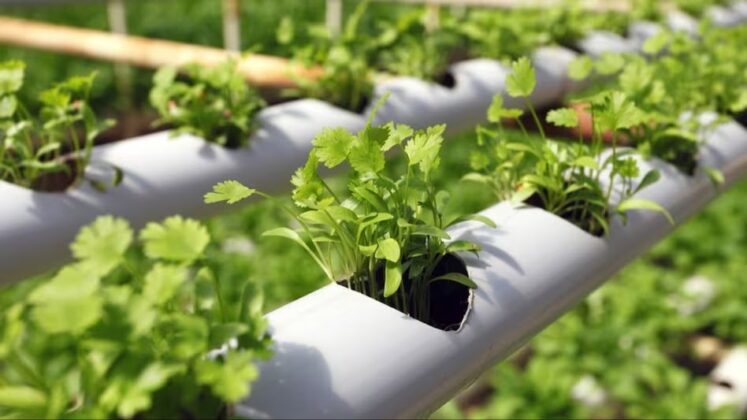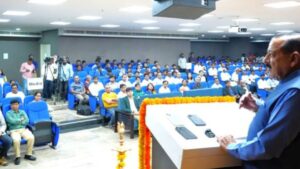A groundbreaking development in agricultural technology has emerged from the laboratories of Linkoping University in Sweden. Scientists have unveiled an electrically conductive “soil” engineered to foster exceptional growth in crops, particularly barley seedlings, marking a potential 50 per cent surge in growth within a mere 15-day period.
Hydroponics: A Paradigm Shift in Agriculture
- This innovative soilless cultivation method, termed hydroponics, harnesses a sophisticated root system activated through a novel cultivation substrate. With hydroponics, the prospect of cultivating food in urban landscapes under meticulously controlled conditions becomes a tangible reality.
- Linkoping University’s Prof. Stavrinidou highlights the crucial importance of their breakthrough amidst global challenges, stating, ‘Growing world population and climate change show existing agricultural methods alone can’t sustain our planet’s food needs.
eSoil: The Electrically Conductive Cultivation Substrate
- The team’s brainchild, an electrically conductive cultivation substrate christened eSoil, is tailored explicitly for hydroponic cultivation.
- Published in the esteemed journal Proceedings of the National Academy of Sciences, their groundbreaking research highlights the remarkable acceleration in barley seedling growth by up to 50 per cent within a fortnight when their roots were electrically stimulated.
Hydroponics Unveiled: Growth Without Soil
- In hydroponic cultivation, plants thrive sans soil, reliant solely on water, nutrients, and a supportive substrate for root attachment. This enclosed system facilitates water recycling, ensuring precise nutrient delivery to each seedling.
- Consequently, minimal water usage and optimal nutrient retention distinguish hydroponics from conventional methods. Moreover, the vertical cultivation potential of hydroponics, using towering structures, maximizes space efficiency.
Breaking Norms: Barley Seedlings in Hydroponics
- While crops like lettuce, herbs, and select vegetables are already successfully cultivated using this method, grains have typically not been part of hydroponic agriculture, except for fodder purposes.
- However, the recent breakthrough study challenges this norm, showcasing the viability of cultivating barley seedlings hydroponically with significantly improved growth rates attributed to electrical stimulation.
The Sustainable Alternative: eSoil’s Composition
- Traditionally, mineral wool serves as the cultivation substrate in hydroponics. However, this non-biodegradable material entails an energy-intensive production process, prompting researchers to seek sustainable alternatives.
- Enter eSoil: a pioneering electronic cultivation substrate fashioned from cellulose, the most abundant biopolymer, combined with a conductive polymer known as PEDOT.
- While the blend isn’t novel per se, its unprecedented application in plant cultivation and the creation of a plant interface mark a groundbreaking stride.
Low Energy, High Impact: Redefining Root Stimulation
- Diverging from prior research that employed high voltage for root stimulation, the Linkoping researchers’ “soil” boasts significantly lower energy consumption and eliminates high voltage hazards.
- Professor Stavrinidou envisions advancing hydroponics. “While not a sole solution, it holds immense potential for global food security, especially in challenging regions” she concludes.
Important Questions Related to Exams
1. What is the term for the soilless cultivation method developed by Linkoping University?
A) Aeroponics
B) Hydroponics
C) Geoponics
2. Which crop showed a potential 50% growth surge within 15 days in the research?
A) Wheat
B) Barley
C) Rice
3. What is the composition of the electronic cultivation substrate, ‘eSoil’?
A) Plastic and Metal
B) Mineral Wool
C) Cellulose and PEDOT
4. According to Professor Stavrinidou, in which regions does hydroponics offer immense potential?
A) Regions with abundant arable land
B) Regions with harsh environmental conditions
C) Both A and B
Kindly share your responses in the comment section.




 India’s First Animal Stem Cell BioBank I...
India’s First Animal Stem Cell BioBank I...
 IndiaAI and National Cancer Grid Launch ...
IndiaAI and National Cancer Grid Launch ...
 BharatGen AI to Support All 22 Scheduled...
BharatGen AI to Support All 22 Scheduled...

